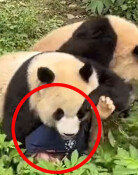S. Korea lawmakers remain hesitant against China’s retaliation over THHAD
S. Korea lawmakers remain hesitant against China’s retaliation over THHAD
Posted March. 25, 2017 07:11,
Updated March. 25, 2017 07:16
U.S. House lawmakers on Thursday proposed a bipartisan resolution strongly condemning China’s retaliatory measures on South Korea over its deployment of Terminal High Altitude Area Defense (THAAD) system. The resolution states China’s reprisal behaviors against South Korean companies and people are unreasonable and inappropriate and describes them as unacceptable. Tough Republican Senator John McCain, chairman of the Senate Armed Services Committee, has released a statement blaming China’s actions against South Korea, this is the first official bipartisan resolution criticizing China’s eye-on-eye attitude toward South Korea.
U.S. lawmakers’ warning to Beijing is partly attributable to the Chinese government’s decision to shut down some plants of Lotte Shanghai Food, which is a joint venture between Lotte Group and Hershey of the U.S., after fire inspections. In addition to U.S. Secretary of State Rex Tillerson’s direct message about inappropriateness of China’s retaliation against South Korea over the deployment of U.S. missile shield during his recent visit to China, U.S. lawmakers have finally taken a tougher approach to Beijing, displaying their solid commitments to not accept China’s increasing pressure on its close ally South Korea anymore. “China is acting like an emperor to its neighbors,” U.S. Secretary of Defense James Mattis bashed China, too. China says its strategic interests are more important than South Korea’s national security. Such thinking, based on its arrogant attitude, is only a bluff.
The international community is criticizing China’s retaliation on South Korea over THAAD. The Financial Times wrote in its editorial that China’s behaviors may violate World Trade Organization rules and this behavior is self-defeating. The South China Morning Post reported that the Chinese government’s economic sanctions on South Korea will fail as South Korean consumer goods, which have become a target of boycott, only account for a mere five percent of South Korea’s imports to China.
South Korea, not the U.S., should bear the biggest brunt of China’s retaliation. However, only a minor opposition Justice Party has proposed a resolution against China’s increasing pressure on South Korea. In the past, the opposition lawmakers, which had showed a pro-China attitude under former President Roh Moo-hyun, contributed to worsening the relations between South Korea and the U.S. They are now calling for reversing the decision on the deployment of missile defense system, while not making any complaints about China’s irrational retaliatory actions against South Korean companies. Will they show the same attitude if the U.S. comes up with similar retaliatory behaviors?
China stood on North Korea’s side over the sinking of the Cheonan on March 26, 2010. Furthermore, the U.S. had to eliminate its plan on military drills against North Korea with its aircraft carrier in the West Sea after meeting with strong opposition from China. The second West Sea Defense Day Ceremony was held at the Daejeon National Cemetery on Thursday in order to honor and remember soldiers killed from the sinking of the Cheonan, the second battle of Yeonpyeong and the bombing of Yeonpyeong Island. However, opposition party members, including leading presidential candidates, Choo Mi-ae, head of the main opposition Democratic Party, and Park Jie-won, head of the People's Party, did not show up at the event. It seems that opposition party members are putting a presidential election over national security, making the public feel anxious about South Korea’s national security if they win the election in May.







